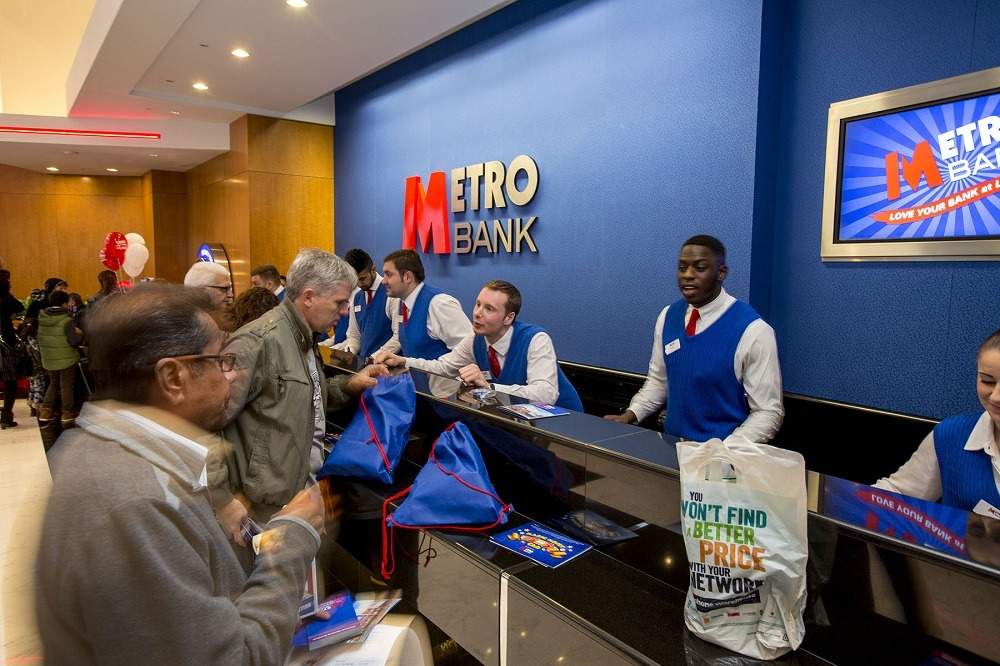This year, 15 companies have been awarded grants from the Capability and Innovation Fund to improve offerings to small businesses in the UK. We look back at who received the money and why

15 firms celebrated grants from the Capability and Innovation Fund
When the Royal Bank of Scotland (RBS) was bailed out by the UK government at the height of the 2008 financial crisis, one of the outcomes was the creation of a £425m ($516m) reserve earmarked for increasing competition in the country’s SME banking industry – also known as the Capability and Innovation Fund (CIF).
Throughout the course of 2019, UK banking companies have been vying with one another in a bidding process to be awarded a portion of the grant money – with the final recipients announced last week.
In all, 15 financial services firms have now been handed funding of various sizes – ranging from £120m ($146m) to £5m ($6m) – based on commitments to improving their SME banking propositions in the UK.
The £425m ($516m) reserve was separated into four “pools” with funding assigned throughout the year. Each of these categories were designed to address a specific issue within the UK business banking sector.
Here we look back over how the CIF has been distributed and examine the companies awarded money to improve finance services for the UK’s small businesses.
Capability and Innovation Fund – Pool A
Pool A was the largest portion of the CIF, allocating £280m ($340m) to three banks who could “facilitate the development of more advanced business current account offerings and ancillary products for SMEs in the UK”.
Metro Bank was the big winner in the round, pocketing £120m ($146m), while challenger bank Starling was awarded £100m ($121m) and a partnership between ClearBank and Tide received £60m ($73m).

Metro Bank CEO Craig Donaldson said: “Securing this award allows us to accelerate our plans to revolutionise banking for SMEs.
“It will help us bring much needed competition to the underserved SME hotspots in the north, while investing in our digital capabilities and creating new jobs.
“We already provide tens of thousands of businesses with market-leading service and convenience, and these funds will enable us to introduce new services and products for more SME customers across the country.”
Capability and Innovation Fund – Pool B
With £80m ($97m) on offer to be split between three applicants, Pool B of the fund was targeted at “the modernisation of existing business current account offerings or the development of new business current accounts or ancillary product propositions”.
Nationwide Building Society took the biggest chunk of the funds, awarded £50m ($61m), while Investec Bank and the Co-operative Bank each took home £15m ($18m).
Nationwide CEO Joe Garner said: “This is good news for small businesses. The fund gives unprecedented opportunity to accelerate plans and inject competition into this market.
“As a building society, we are in a unique position as the only mutual with the scale, trust and track record to offer a compelling alternative to the banks.
“While the money is a massive boost for our plan, we also aim to match every pound of the £50m award with our own funding over a five-year plan.”
Capability and Innovation Fund – Pool C
Pool C focused on improving the business offerings for lending and payments – both domestic and international – provided by banks to SMEs in the UK.
Grants of £10m ($12m) were awarded to Atom Bank, iwoca, Modulr Finance and Currencycloud.

Atom CEO and co-founder Mark Mullen said: “As a fast growing new entrant we know just how hard it is to get a business off the ground, and we recognise that the needs of smaller businesses are different from those of larger firms.
“We are delighted to receive this award and we will provide SMEs with a truly digital offering that allows them to get on with the day-to-day running of their businesses, giving value back to customers and bringing some much needed competition to the business banking market.”
Capability and Innovation Fund – Pool D
The smallest of the pots created by the Capability and Innovation Fund, Pool D concentrated on “the commercialisation of financial technology that is relevant to SMEs”.
It awarded five grants of £5m ($6m), with Codat, Fluidly, Form3, Funding Options and Swoop Finance sharing the money.
Funding Options CEO Conrad Ford said: “Small businesses are at the heart of the UK economy and it’s vital they are able to access a range of funding choices when they need it.
“Winning this grant from the Capability and Innovation Fund helps us accelerate our plans to help SMEs across the country achieve their goals.
“It will help us develop much needed technology solutions to support small businesses in local communities to access funding, and it will also enable us to continue to grow the alternative lending market.”
